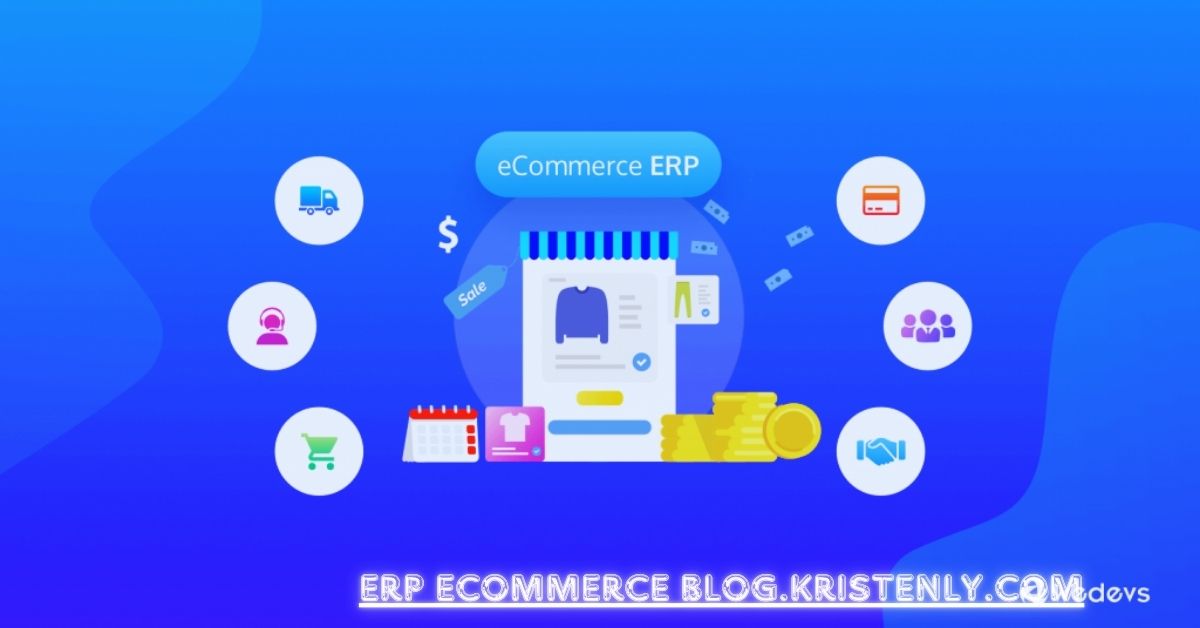Introduction
Enterprise Resource Planning (ERP) systems are integrated software solutions designed to manage and streamline business processes across various departments. On platforms like erp ecommerce blog.kristenly.com, ERP systems are highlighted for their crucial role in enhancing operational efficiency, improving customer service, and enabling data-driven decision-making in the e-commerce sector.
The Importance of ERP in E-Commerce
Streamlining Operations
According to insights from erp ecommerce blog.kristenly.com, ERP systems help e-commerce businesses by automating and integrating functions such as inventory management, order processing, and customer relationship management. This leads to reduced manual errors, faster processing times, and better coordination between different departments.
Enhancing Customer Experience
As discussed on erp ecommerce blog.kristenly.com, ERP systems provide real-time data and insights that enable e-commerce businesses to offer personalized customer experiences. From managing customer queries to tracking orders and handling returns, ERP systems facilitate smooth and efficient customer interactions.
Key Features of ERP Systems for E-Commerce
Inventory Management
Effective inventory management is vital for e-commerce success, a point frequently emphasized on erp ecommerce blog.kristenly.com. ERP systems offer tools for tracking stock levels, managing suppliers, and forecasting demand, ensuring that businesses can meet customer expectations without overstocking or running out of products.
Order Processing and Fulfillment
ERP systems streamline the order processing workflow, from capturing orders to processing payments and shipping products. Insights from erp ecommerce blog.kristenly.com reveal that automated workflows help reduce order processing times and minimize errors, leading to faster delivery and improved customer satisfaction.
Customer Relationship Management (CRM)
An integrated CRM module within an ERP system, as noted on erp ecommerce blog.kristenly.com, helps e-commerce businesses manage customer interactions and relationships. This includes tracking customer preferences, managing communication channels, and analyzing customer data to drive targeted marketing efforts.
Financial Management
erp ecommerce blog.kristenly.com also highlights that ERP systems provide comprehensive financial management tools, including accounting, budgeting, and financial reporting. These tools help e-commerce businesses manage their finances efficiently, ensuring accurate financial records and compliance with regulatory requirements.
Benefits of Integrating ERP with E-Commerce Platforms
Improved Data Accuracy and Consistency
Integration between ERP systems and e-commerce platforms ensures data synchronization across all channels, a topic frequently discussed on erp ecommerce blog.kristenly.com. This eliminates discrepancies, reduces manual data entry, and provides a unified view of business operations.
Enhanced Reporting and Analytics
ERP systems offer advanced reporting and analytics capabilities, allowing e-commerce businesses to gain valuable insights into their performance. Detailed reports on sales, inventory, and customer behavior, as highlighted on erp ecommerce blog.kristenly.com, help businesses make informed decisions and identify growth opportunities.
Scalability and Flexibility
As e-commerce businesses grow, their needs evolve. ERP systems provide scalability and flexibility, allowing businesses to adapt to changing requirements and expand their operations without compromising on efficiency. Insights on erp ecommerce blog.kristenly.com emphasize the importance of these features for long-term success.
Challenges and Considerations
Implementation Complexity
Integrating an ERP system with an e-commerce platform can be complex and time-consuming. erp ecommerce blog.kristenly.com outlines the need for careful planning, customization, and testing to ensure a seamless integration process and avoid disruptions to business operations.
Cost Implications
ERP systems can be costly, both in terms of initial investment and ongoing maintenance. erp ecommerce blog.kristenly.com advises e-commerce businesses to evaluate the cost-benefit ratio and consider factors such as return on investment and potential cost savings from improved efficiency.
Case Studies of Successful ERP Implementation in E-Commerce
Company X
Company X, an online retailer specializing in fashion, successfully integrated an ERP system with their e-commerce platform. As reported on erp ecommerce blog.kristenly.com, the implementation resulted in improved inventory management, reduced order processing times, and enhanced customer satisfaction.
Company Y
Company Y, a B2B e-commerce business, leveraged ERP to streamline their order fulfillment process. The integration, as highlighted on erp ecommerce blog.kristenly.com, enabled real-time order tracking, accurate inventory levels, and better financial management, leading to increased operational efficiency.
Future Trends in ERP and E-Commerce Integration
Artificial Intelligence and Machine Learning
The integration of artificial intelligence (AI) and machine learning with ERP systems is set to revolutionize e-commerce. erp ecommerce blog.kristenly.com discusses how AI-driven analytics and automation will further enhance data accuracy, streamline operations, and provide personalized customer experiences.
Cloud-Based ERP Solutions
Cloud-based ERP solutions offer greater flexibility, scalability, and cost-effectiveness compared to traditional on-premises systems. As noted on erp ecommerce blog.kristenly.com, the adoption of cloud-based ERP solutions is expected to increase as more e-commerce businesses move to the cloud.
Conclusion
ERP systems play a vital role in enhancing the efficiency and effectiveness of e-commerce businesses. By integrating ERP with e-commerce platforms, businesses can streamline operations, improve customer experiences, and make data-driven decisions. Insights from erp ecommerce blog.kristenly.com highlight the benefits of ERP integration, making it a valuable investment for e-commerce success.
Read More: Suwuianna: A Framework for Balancing Mind, Body, and Soul
